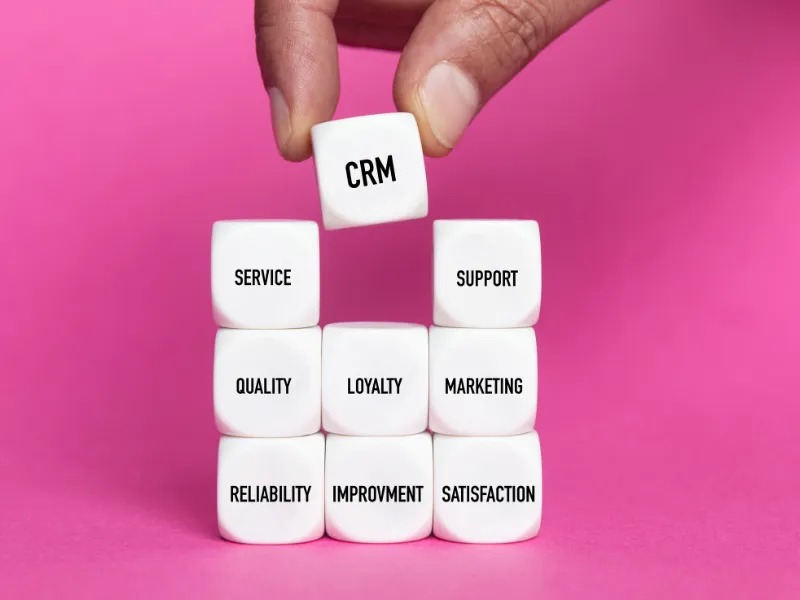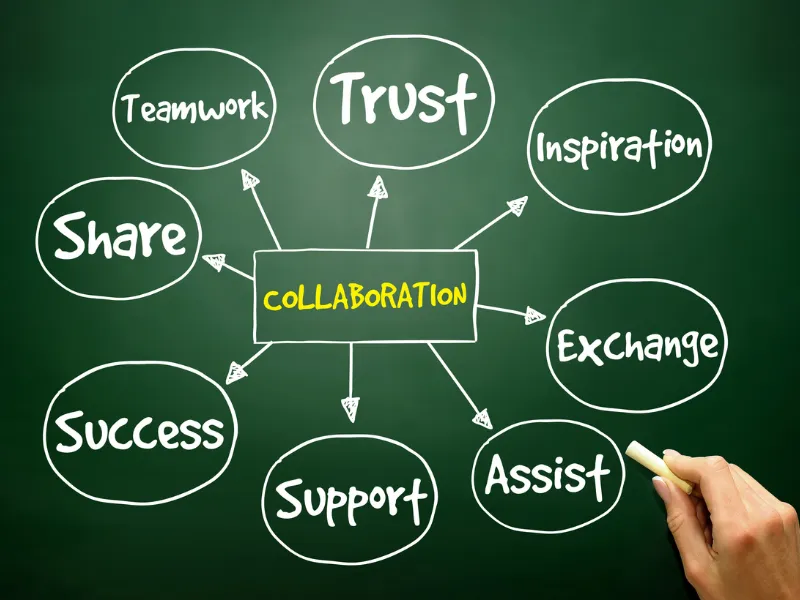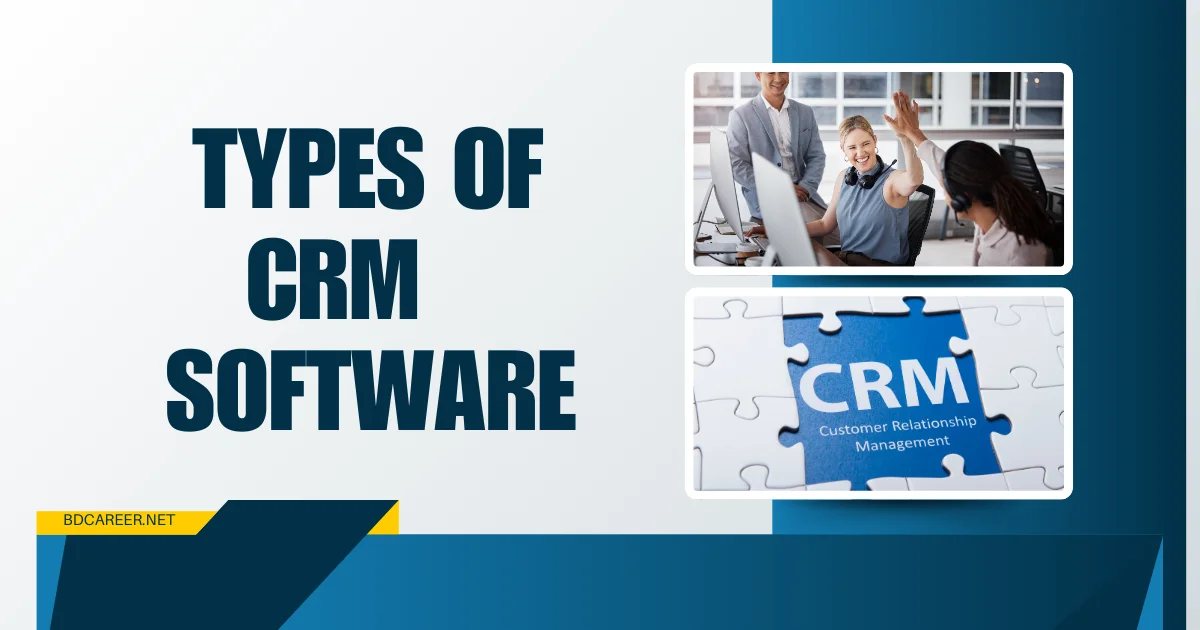Customer Relationship Management (CRM) software is no longer an option for businesses. Companies of all sizes are adopting CRM solutions to deepen customer interactions, improve efficiency, and increase profitability.
But here’s where things get tricky that not all CRMs are equal. Depending on company objectives, you may require a system to automate daily chores, analyze customer data, or improve communication.
In this article, I’ll walk you through these CRM kinds and share insights from my experience as a business blogger who has used a variety of platforms. By the end, you’ll know exactly which form of CRM is best for your firm.
Contents
What is CRM software?
CRM software is a technology that helps firms manage client relationships. Consider it the ultimate personal assistant, organizing customer data, tracking sales, and ensuring clear team communication.
CRM is more than just maintaining contacts; it’s about converting raw data into valuable insights that help organizations retain consumers, uncover new possibilities, and provide personalized experiences.

The three main types of CRM—Operational, Analytical, and Collaborative—each serve a distinct purpose:
- Operational CRM automates tasks like lead tracking and email campaigns.
- Analytical CRM dives into data to uncover patterns and trends.
- Collaborative CRM enhances communication between internal teams and with customers.
Operational CRM: Streamlining Daily Activities
What Is Operational CRM?
Operational CRM focuses on automating your day-to-day business processes. Its primary goal is to make workflows smoother, helping teams focus on building relationships rather than getting bogged down by repetitive tasks.
Features and Benefits of Operational CRM
Operational CRM systems are built around three key automations:
- Sales Automation: Keeps track of leads, automates follow-ups, and provides a clear sales pipeline.
- Marketing Automation: Helps launch campaigns, segment audiences, and track results effortlessly.
- Service Automation: Manages customer service tickets, ensuring timely responses and resolution.
For instance, tools like HubSpot CRM let you set up workflows to send personalized emails to customers automatically—a lifesaver for small businesses with limited manpower.

Use Cases for Operational CRM
Operational CRMs shine in industries that require repeatable processes. Here’s how they work in different settings:
- Small Businesses: A local fitness studio uses operational CRM to automate appointment reminders, ensuring clients never miss a class.
- Large Enterprises: A multinational retailer uses CRM to coordinate inventory, sales, and customer communications across hundreds of locations.
Analytical CRM: Leveraging Data for Insights
What Is Analytical CRM?
If you love diving into numbers and uncovering trends, Analytical CRM is your best friend. This type of CRM gathers and analyzes customer data to help businesses make informed decisions. Analytical CRM provides a bird’s-eye view of your customers’ journey, from their first website visit to their most recent purchase.
Features and Benefits of Analytical CRM
Key features include:
- Data Mining: Finds hidden patterns in customer behavior.
- Customer Segmentation: Groups customers based on shared traits, enabling more targeted campaigns.
- Predictive Analytics: Forecasts future trends, such as which products are likely to sell well next quarter.

Use Cases for Analytical CRM
Analytical CRM is a game-changer for businesses looking to understand their customers better. Here are a few scenarios:
- E-commerce: By analyzing purchase history, an online retailer can recommend products customers are most likely to buy.
- B2B Marketing: A SaaS company segments leads based on engagement levels, allowing the sales team to prioritize high-potential clients.
Collaborative CRM: Enhancing Communication Across Teams
What Is Collaborative CRM?
Collaborative CRM is all about breaking silos. It focuses on improving communication both internally (between sales, marketing, and support teams) and externally (with customers).
Think of it as the bridge that ensures everyone stays on the same page. Whether it’s sharing customer histories or syncing sales data, Collaborative CRM ensures that no information gets lost in translation.
Features and Benefits of Collaborative CRM
Key features include:
- Unified Communication Channels: Centralizes customer conversations from emails, social media, and chat into one platform.
- Shared Customer Data: Ensures all teams have access to the same information, reducing miscommunication.
Use Cases for Collaborative CRM
This type of CRM is ideal for companies that deal with multiple customer touchpoints. For example:
- Healthcare Providers: Ensures seamless communication between front-desk staff, doctors, and billing departments.
- Retail Chains: Helps store employees access loyalty program data to offer personalized recommendations.

Real-World Example
A telecom company using Zendesk CRM can resolve customer issues faster by giving agents access to previous interactions, leading to a 20% boost in customer satisfaction scores.
How to Choose the Right CRM for Your Business
Choosing a CRM is like picking a car—you need the one that fits your needs, not just the flashiest model. Here’s how to narrow down your options.
Key Factors to Consider
- Business Size and Budget: Small businesses often benefit from affordable, user-friendly CRMs like HubSpot, while larger corporations might need enterprise solutions like Salesforce.
- Features You Need: Do you need automation? Analytics? Social media integration? Identify must-have features before shopping around.
- Ease of Use: The fanciest CRM is useless if your team can’t figure out how to use it. Look for systems with intuitive interfaces.
- Scalability: Your business will grow, and your CRM should grow with you. Make sure it can handle increased data and additional users.
Popular CRM Tools
Here’s a quick comparison of some top CRM platforms:
| CRM System | Ideal For | Strengths | Weaknesses |
| HubSpot | Small businesses | Free plan, easy to use | Limited advanced features |
| Salesforce | Enterprises | Customizable, feature-rich | Expensive, complex setup |
| Zoho CRM | Growing businesses | Affordable, great automation | Slightly outdated user interface |
| Pipedrive | Sales-focused teams | Excellent sales pipeline tools | Limited marketing functionality |
Pro Tips for Picking the Right CRM
- Take advantage of free trials. Experiment with different platforms to find the one that suits your workflow.
- Get feedback from your team. The people using the CRM daily should feel comfortable with it.
- Look for tools that integrate seamlessly with your existing systems (email, e-commerce, etc.).
Conclusion
Adopting the appropriate CRM may improve your organization by reducing procedures, improving customer interactions, and driving growth. While resistance to change and integration concerns may exist, they may be overcome with good planning and training. Selecting a CRM tailored to your company’s needs and focusing on long-term rewards can position your team for success.
FAQ
What are the three primary types of CRM software?
There are three types of CRM software: operational, analytical, and collaborative. Operational CRM automates daily tasks, Analytical CRM employs data analysis to make decisions, and Collaborative CRM increases team and customer communication.
How does operational CRM benefit businesses?
Sales automation, marketing campaigns, and customer support are among the operations that operational CRM streamlines. It automates repetitive operations like follow-up emails and lead tracking, increasing corporate efficiency and eliminating errors.
What is the purpose of analytical CRM?
Analytical CRM collects and analyses customer data to deliver actionable insights. It allows businesses to foresee trends, segment customers, and develop data-driven plans to increase client retention and campaign effectiveness.
What industries gain the most from CRM software?
CRM software can assist any industry but is especially useful for e-commerce, B2B enterprises, retail, real estate, healthcare, and customer service teams. It adapts to any firm that values customer relationships and streamlines operations.
How can I select the best form of CRM for my company?
Consider your company’s size, goals, and priorities. Choose Operational CRM for your automation needs. If data-driven insights are critical, Analytical CRM is suitable. If communication between teams is difficult, Collaborative CRM is the ideal option.
Are there any CRMs that integrate all three types?
Many modern CRMs, such as Salesforce and Zoho CRM, have operational, analytical, and collaborative functionalities, providing enterprises with a complete solution.
